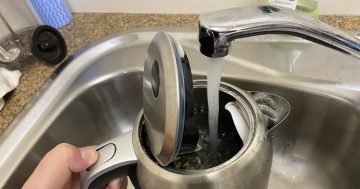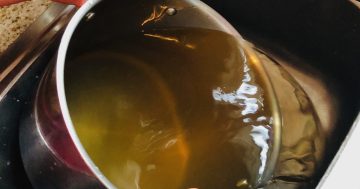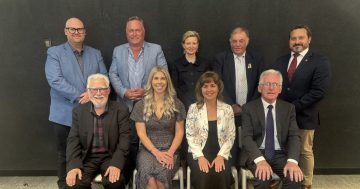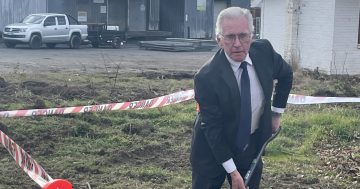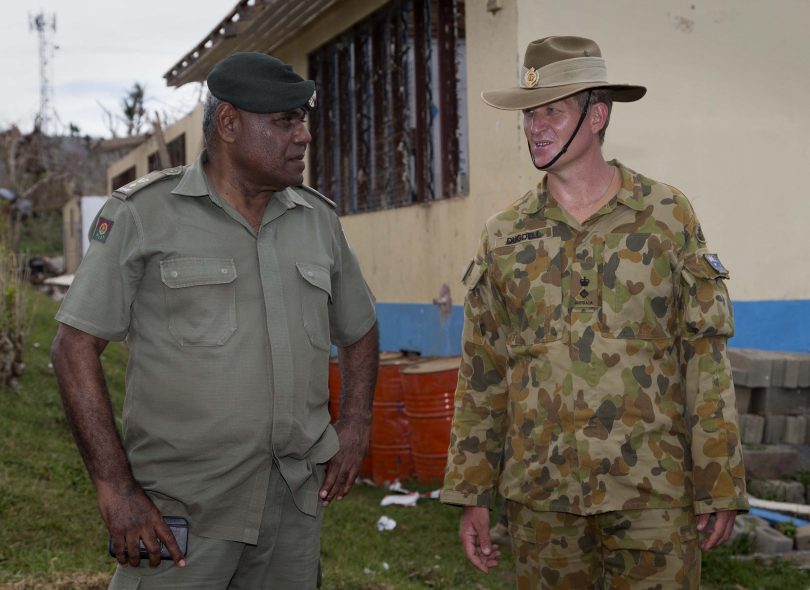
James Dugdell (right) shows Commanding Officer of the Republic of Fiji Military Forces Engineer Regiment, Lieutenant-Colonel Semi Mocelutu, around a village repaired by the Australian Army Engineers on the island of Koro, Fiji, as part of Operation Fiji Assist. Photo: Department of Defence.
Yass Valley Council’s new director of infrastructure and assets, James Dugdell, has vowed to roll up his sleeves on the dirty, smelly problem plaguing the region’s town centre.
Residents of Yass have poured brown drinking water, which often smells like chlorine, from their taps for the past 17 years and their patience is wearing thin.
Yet it seems if anyone can get the job done to rectify it, it’s this former Australian Army engineer of 26 years.
After graduating from Canberra’s Australian Defence Force Academy with a degree in civil engineering, and completing training at the Royal Military College at Duntroon, Mr Dugdell embarked on a career delivering infrastructure to communities in the Middle East, South Pacific and remote Australia.
Mr Dugdell has delivered water and sewer infrastructure in Iraq, schools and roads in Afghanistan, and post-cyclone relief in Fiji.
He has also worked on the planning and delivery of infrastructure, training and health benefits in remote Australian communities as part of the Army Aboriginal Community Assistance Programme, the highlight of which was leading a seven-month deployment to the remote community of Fregon in the Anangu Pitjantjatjara Yankunytjatjara lands in northwest South Australia in 2013.
Life in a regional NSW town with local government may not be as fast-paced or as glorious as the army, however Mr Dugdell doesn’t doubt it will be any less challenging.
Yass Valley Council has been working on a solution to its water woes since the dilemma was thrown into the spotlight in 2019 after a treatment plant malfunction left the town with brown water for an entire summer.
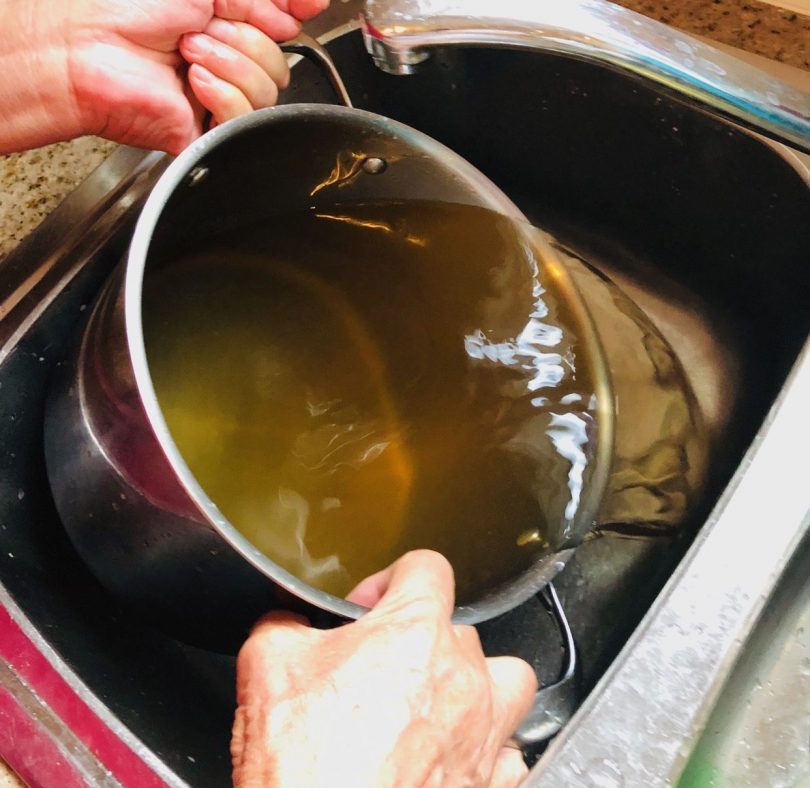
Yass resident Tom O’Dea shows the brown water that pours from his taps. Photo: Supplied.
Fast-forward to 2021 and council has suggested several options, with a new water treatment plant at the top of the list.
The NSW Department of Planning, Industry and Environment agrees that upgrades to the treatment plant are necessary, but is yet to back the council’s proposal of a new plant.
Mr Dugdell says a small upgrade of the existing raw water pump station and installation of a bubble plume aeration are on track to be completed by the end of 2021, and will improve the drinking water to a degree.
However, he says a major upgrade or new plant will have to be approved if the water problem is going to go away, and he’s making it his priority to continue discussions with the department.
“The water treatment plant will either need to be upgraded or a new plant will need to be built in order to address the issue,” said Mr Dugdell. “My preference is a new plant because the existing plant is 30 years old.”
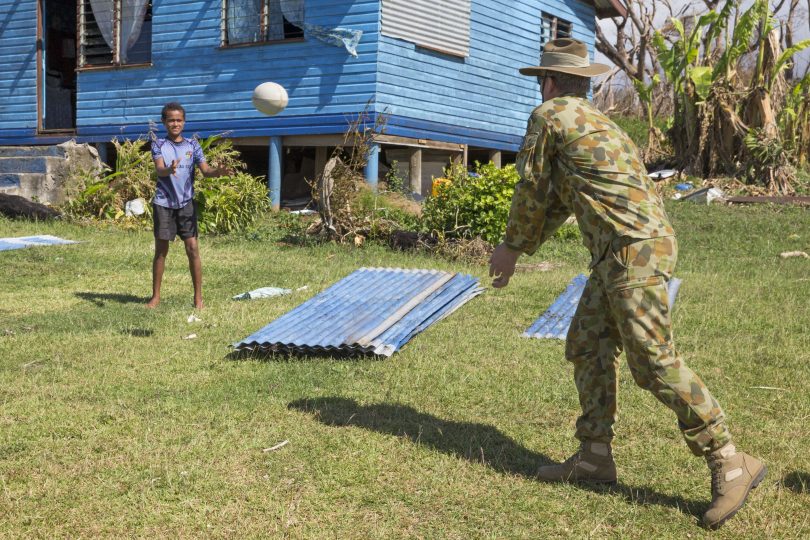
James Dugdell passes a ball to a local girl during an infrastructure assessment of Koro Island, Fiji. Photo: Department of Defence.
Originally from country Queensland, Mr Dugdell viewed the move to Yass Valley as a chance to return to a rural community that’s close to where his partner grew up and close to Canberra.
After 26 years in the army, he said he’d reached a point where he was no longer directly involved with helping communities, which is his passion.
“Being able to deliver something that improves people’s lives is what I really like doing, which is why I wanted to leave the army and go into local government,” said Mr Dugdell.
While water is the biggest challenge, Mr Dugdell has also highlighted a need to upgrade roads and waste services in the Yass Valley before the population jumps to the predicted 27,000 by 2036.
“A long-term challenge will be the Settlement Strategy and building infrastructure to support the expansion across the Yass Valley, especially given the desire of people to move out of the city and into more rural locations – making sure sewer, roads and rubbish collection keeps up with demand during the next 10-15 years.”
Mr Dugdell intends to make the most of his new life by joining local clubs and activities, such as River Parkrun, that align with his running, cycling and gardening hobbies.
Although he said getting to grips with his new role will take priority for at least the first few months.
Original Article published by Hannah Sparks on About Regional.












